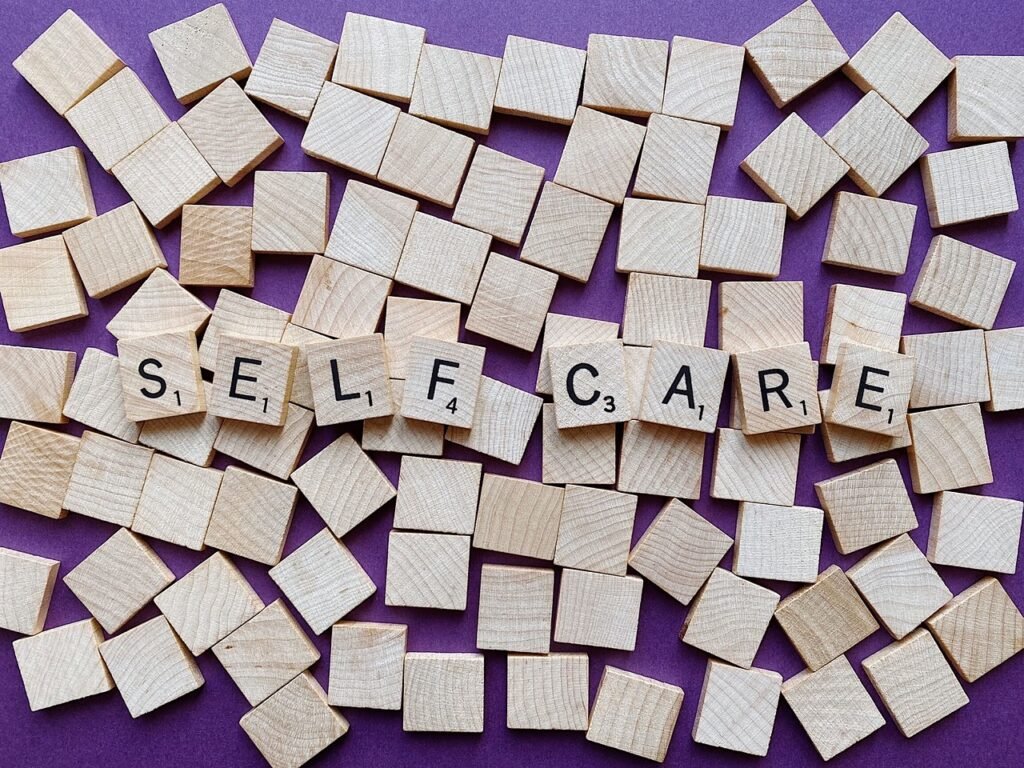Introduction
Self-care isn’t just a luxury—it’s a global health must-have! The World Health Organization (WHO) highlights how vital self-care is for achieving our best health, saving on healthcare costs, and pushing long-term well-being.
According to WHO, it’s all about our ability to boost and maintain our health by making informed choices. With that in mind, let’s dive into 11 self-care practices assisted by global research and medical evidence.

Practice 1: Mindfulness Meditation
WHO Perspective: The WHO emphasizes mental health as a vital piece of global well-being, spotlighting mindfulness practices to tackle stress and anxiety disorders. Meditation emerges as a powerful tool for managing mental health challenges across diverse communities. Let’s embrace these practices and enhance our daily lives! 🧘♀️🌎
- Evidence: A WHO-backed study revealed that mindfulness reduces symptoms of anxiety by 30% in individuals facing workplace stress.
- Example: Mindfulness programs in schools across the UK have shown improvements in students’ focus and emotional regulation.
- Tip: Start with WHO-recommended apps or resources for mindfulness techniques, such as guided breathing exercises.
How Diet Supports This Practice: The food you eat directly impacts your ability to focus and meditate. Diets rich in omega-3 fatty acids (found in salmon and walnuts) enhance brain function, making it easier to practice mindfulness.
- Pro Tip: Incorporate foods like blueberries, which improve memory and concentration, into your pre-meditation routine.
- Comment: “I never thought I had the patience for meditation, but starting with just five minutes a day has completely changed my mindset. I’m calmer, more focused, and feel like I can tackle anything!” – Emily R., USA.
- Story: Ravi Kumar, an IT professional from India, struggled with work-related anxiety. After reading about the benefits of mindfulness, he began practicing guided meditation. “Within a month, my sleep improved, and I started feeling more present during the day,” Ravi shared.

Practice 2: Creative Hobbies
WHO Perspective: Engaging in creative activities supports mental health, a key pillar of WHO’s Mental Health Action Plan 2013–2030. Creative hobbies foster emotional resilience and social well-being.
- Evidence: WHO research on art therapy shows significant mental health benefits, including reduced depression and improved self-expression.
- Example: In South Africa, WHO-supported initiatives use art therapy to help trauma survivors rebuild confidence and cope with their experiences.
- Tip: Explore hobbies like painting or pottery as a therapeutic outlet for stress and emotions.
How Diet Supports This Practice: Creative pursuits require mental clarity and sustained energy. A diet with complex carbohydrates (like whole grains) and lean proteins (like chicken or tofu) helps maintain stable blood sugar levels for prolonged focus.
- Example: Artists in Mediterranean countries often follow diets rich in olive oil, nuts, and fresh vegetables, enhancing their stamina for creative projects.
- Review: “Knitting has become my therapy. I read this article during a stressful period in my life, and picking up a creative hobby was the best advice. I’ve even started selling my creations online!” – Sophia L., UK.
- Story: Miguel, a teacher from Spain, discovered the joy of watercolor painting after reading about creative hobbies. “It helped me rediscover my passion for art and gave me an outlet to express my emotions.”
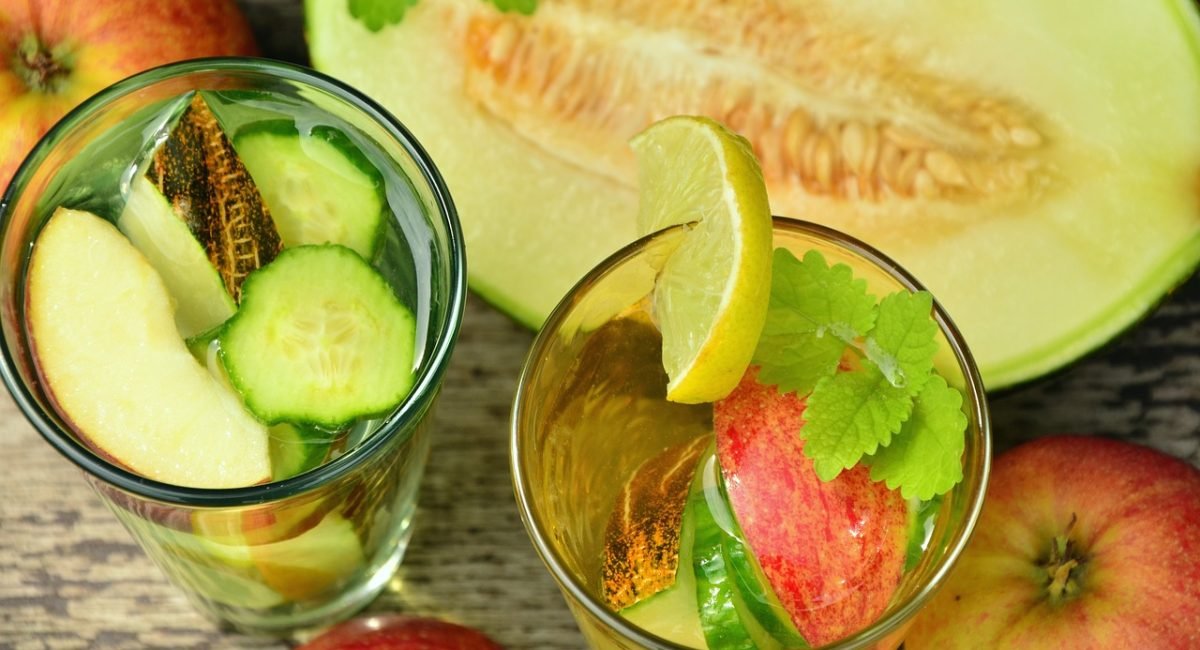
Practice 3: Digital Detox
WHO Perspective: WHO recognizes the detrimental effects of excessive screen time on sleep, physical health, and mental well-being. It encourages digital detox strategies to mitigate these risks.
- Evidence: WHO’s Global Recommendations on Physical Activity advocate reducing sedentary behaviors like screen time to improve overall health.
- Example: In Finland, public health campaigns supported by WHO promote “screen-free zones” to improve family bonding and reduce stress.
- Tip: Designate tech-free hours or spaces in your home to disconnect and rejuvenate.
How Diet Supports This Practice: Over-reliance on digital screens can disrupt your sleep and increase stress. Healthy diets rich in magnesium (found in spinach, almonds, and bananas) can counteract these effects by calming the nervous system.
- Pro Tip: Pair your digital detox with calming teas like chamomile to further reduce stress.
- Comment: “The idea of a digital detox seemed impossible at first. But once I set ‘no-phone’ hours in the evening, my sleep improved, and I reconnected with my family. It’s a game-changer.” – Carlos D., Mexico.
- Story: Anna, a marketing executive in Finland, implemented “Tech-Free Sundays” after reading this article. “It’s now our family tradition. We spend Sundays outdoors, and it has brought us closer than ever.”
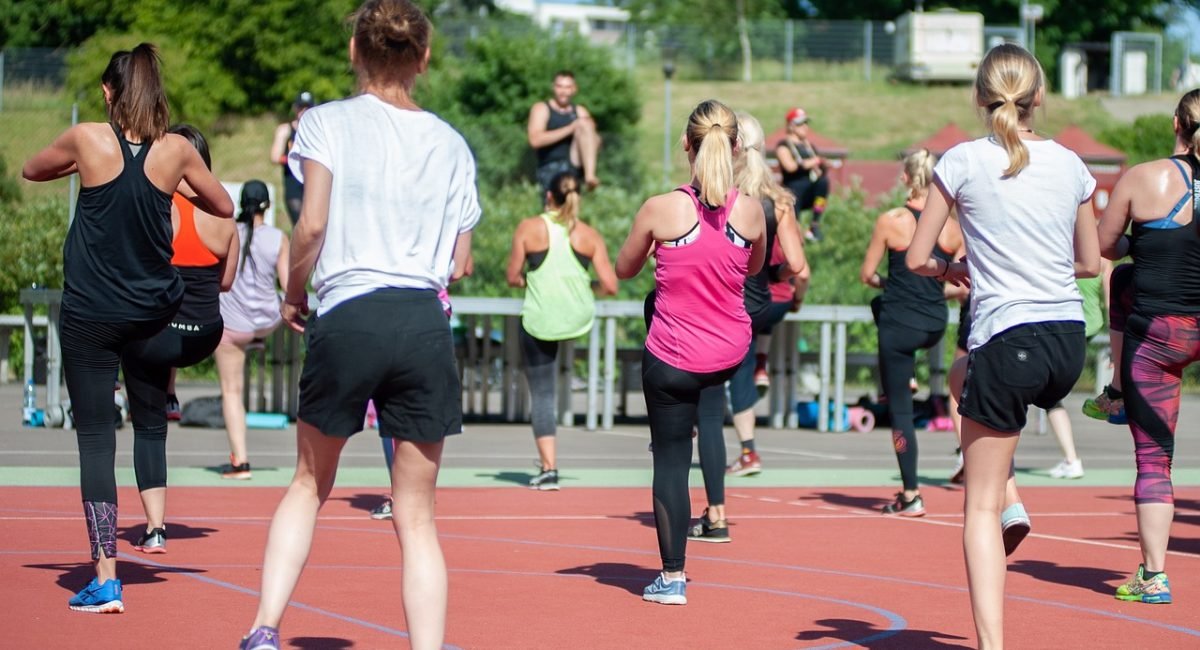
Practice 4: Physical Movement
WHO Perspective: The WHO Global Action Plan on Physical Activity 2018–2030 highlights the necessity of regular physical movement to combat non-communicable diseases like diabetes and cardiovascular illnesses.
- Evidence: WHO data indicates that insufficient physical activity is responsible for 5 million deaths annually. Just 30 minutes of moderate exercise a day can lower the risk of chronic disease.
- Example: In Colombia, “Ciclovía” events, supported by WHO, close streets to cars and encourage walking, cycling, and outdoor activities.
- Tip: Integrate movement into your day with activities like walking meetings or dance breaks.
How Diet Supports This Practice: Proper nutrition fuels your body for exercise and recovery. Carbohydrates provide energy for movement, while proteins aid in muscle repair.
- Example: Marathon runners often load up on whole grains and fruits for energy, while post-workout meals include proteins like eggs or fish for recovery.
- WHO Advice: The WHO recommends eating a variety of foods to meet your nutritional needs during physical activities.
- Review: “I hated exercise until I realized it didn’t have to mean going to the gym. Dancing in my living room and walking my dog count, too! I’ve lost weight and feel more energetic.” – Tina M., South Africa.
- Story: Liam, a retiree in Australia, began daily walking in the park after reading about the importance of movement. “I’ve made new friends and feel fitter at 65 than at 45!”
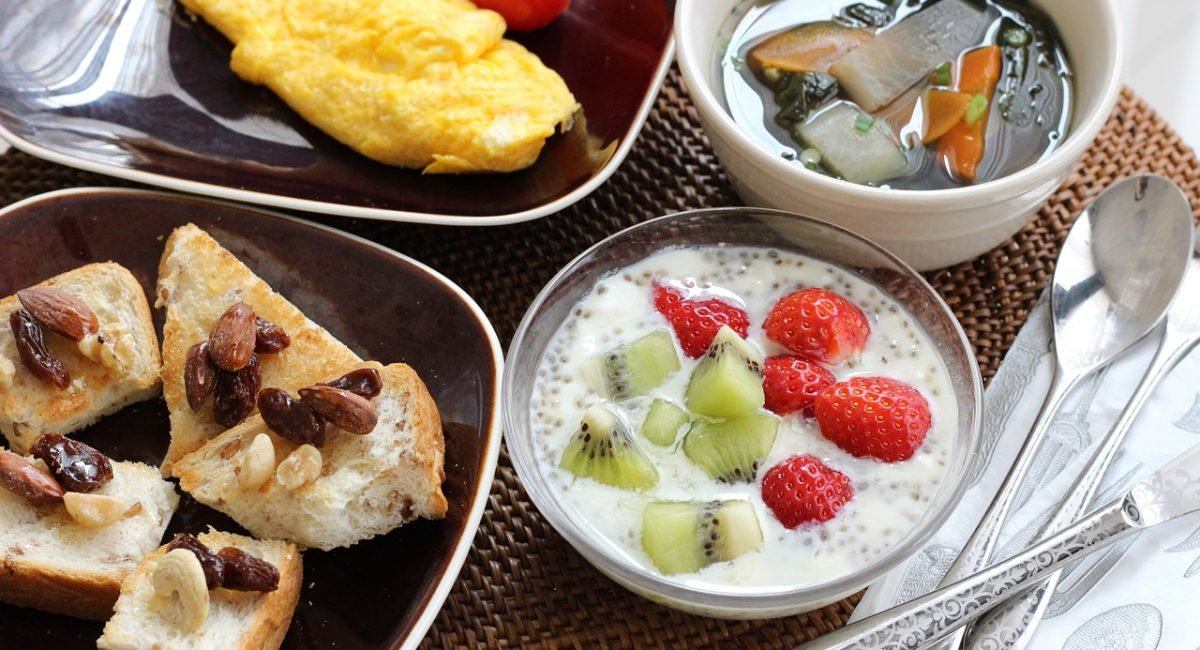
Practice 5: Balanced Nutrition
WHO Perspective: Proper nutrition is central to WHO’s initiatives to combat obesity, malnutrition, and chronic diseases worldwide. A balanced diet is considered a cornerstone of self-care.
- Evidence: WHO reports poor diets are linked to 20% of deaths globally. Consuming nutrient-dense foods can prevent obesity, diabetes, and heart disease.
- Example: WHO-backed campaigns in Mediterranean countries promote the Mediterranean diet, which reduces the risk of heart disease and depression.
- Tip: Follow WHO dietary guidelines by increasing fruits, vegetables, and whole grains while reducing sugar and salt intake.
Key Role in Self-Care: A healthy diet is fundamental to overall self-care. According to WHO, poor nutrition contributes to 20% of deaths worldwide, primarily through preventable diseases like diabetes, heart disease, and obesity.
- Evidence: WHO reports that balanced diets, like the Mediterranean diet, can reduce the risk of cardiovascular disease by 30%.
- Tip: Focus on whole foods—vegetables, fruits, whole grains, and lean proteins—and minimize processed and sugary items.
- Comment: “I didn’t realize how much my diet was affecting my mood. Adding more fresh veggies and cutting back on sugar made me feel lighter and happier.” – Alisha P., UAE.
- Story: Jean-Luc, a chef in France, revamped his diet after reading about balanced nutrition. “As a chef, I’ve always loved food, but this article inspired me to create healthier versions of classic recipes. My energy levels have soared!”

Practice 6: Sleep Hygiene
WHO Perspective: WHO has identified sleep deprivation as a growing public health concern due to its impact on mental and physical health, particularly in urban populations.
- Evidence: WHO’s Healthy Cities Network highlights that poor sleep increases the risk of heart disease, diabetes, and depression. Improving sleep hygiene is essential for community health.
- Example: In Singapore, the WHO supports urban planning initiatives that reduce noise pollution and promote better sleep for residents.
- Tip: Follow WHO recommendations to establish a regular sleep schedule and create a sleep-friendly environment.
How Diet Supports This Practice: Certain foods can improve sleep quality. Tryptophan-rich foods (like turkey, cheese, and nuts) boost serotonin, promoting better sleep. Avoid caffeine and heavy meals close to bedtime.
- Example: In Japan, warm miso soup before bed is a traditional practice that aids relaxation and digestion, enhancing sleep quality.
- Review: “I thought poor sleep was just part of adulthood. But after trying the tips here, like a consistent bedtime and no screens before bed, I wake up refreshed every morning.” – Maria S., Brazil.
- Story: Ahmed, a college student in Egypt, overcame his insomnia by creating a bedtime ritual. “It helped me focus better during exams, and my grades have improved dramatically.”

Practice 7: Nature Engagement
WHO Perspective: WHO underscores the importance of access to green spaces in urban planning to improve mental and physical well-being. Nature immersion is a key component of sustainable self-care.
- Evidence: WHO studies show that spending 120 minutes per week in nature reduces stress and enhances mood.
- Example: Japan’s forest bathing (Shinrin-yoku), endorsed by WHO, is a globally recognized practice to lower blood pressure and reduce anxiety.
- Tip: Incorporate outdoor activities, like walks in a park or gardening, into your routine.
How Diet Supports This Practice: Eating light, nutrient-dense meals before spending time outdoors ensures sustained energy for activities like hiking or gardening. Fruits and nuts make excellent portable snacks.
- Tip: In Sweden, WHO-backed nature retreats combine outdoor activities with locally sourced meals for maximum health benefits.
- Comment: “I started taking 20-minute walks in the park every morning. It’s now my favorite part of the day. Nature truly heals.” – Hiroko Y., Japan.
- Story: Rebecca, an entrepreneur from Canada, began incorporating nature immersion into her routine. “I take my meetings outdoors whenever possible. It’s helped me feel more creative and less stressed.”

Practice 8: Gratitude Journaling
WHO Perspective: WHO emphasizes the role of positive psychology, including gratitude, in promoting mental well-being and reducing the global burden of mental health disorders.
- Evidence: WHO’s collaboration with mental health organizations highlights that gratitude practices improve resilience and lower depressive symptoms.
- Example: Gratitude initiatives in Bhutan, guided by WHO, focus on happiness and well-being metrics as part of national policy.
- Tip: Dedicate a few minutes daily to write down three things you’re grateful for, focusing on specific details.
How Diet Supports This Practice: Gratitude is often tied to celebrating life’s abundance, including food. Cooking healthy meals can itself become an act of gratitude. Opt for meals rich in antioxidants to improve mood and focus while journaling.
- Example: Preparing a fresh salad with colorful vegetables can be a meditative and mindful gratitude exercise.
- Review: “Gratitude journaling sounded cheesy, but it’s life-changing. Writing down three things I’m grateful for each day shifted my perspective.” – Jonathan K., Germany.
- Story: Esther, a nurse in Kenya, found solace in gratitude journaling during the pandemic. “It reminded me of the small joys, even on the hardest days.”
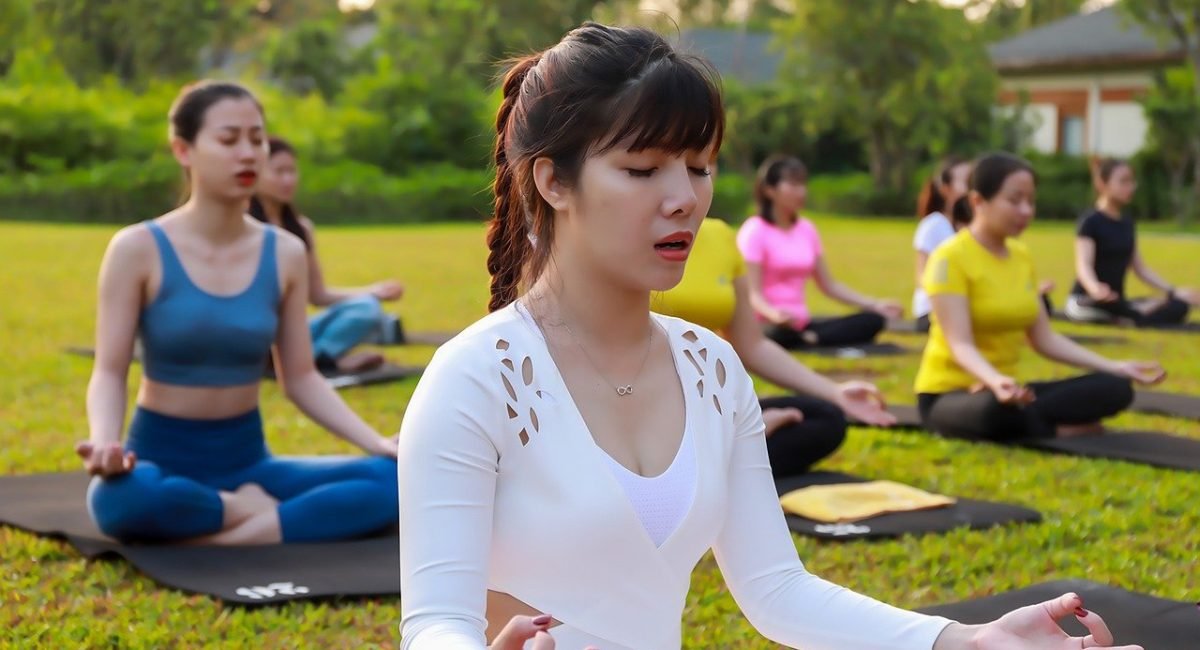
Practice 9: Yoga for Harmony
WHO Perspective: Yoga aligns with WHO’s initiatives for promoting physical and mental well-being. WHO has supported yoga programs globally to address stress, musculoskeletal issues, and chronic pain.
- Evidence: WHO research shows that Yoga reduces cortisol levels, lowers blood pressure, and improves mental clarity.
- Example: In India, WHO endorses International Yoga Day as a way to encourage holistic health practices worldwide.
- Tip: Begin with simple Yoga poses like Cat-Cow or Mountain Pose to enhance flexibility and relaxation.
How Diet Supports This Practice: A clean diet enhances yoga practice by reducing bloating and improving flexibility. Hydration, paired with anti-inflammatory foods like turmeric and ginger, supports joint health.
- Example: In India, yogis traditionally consume sattvic foods (pure and nourishing) like fresh fruits, lentils, and milk to enhance mental and physical harmony.
- Comment: “Yoga was intimidating at first, but starting with beginner poses made it approachable. I feel more flexible and less stressed.” – Meena T., India.
- Story: Omar, a banker in Dubai, found relief from chronic back pain through Yoga. “It’s now part of my daily routine, and I feel stronger and more grounded.”

Practice 10: Improving Friendships
WHO Perspective: WHO’s framework for mental health highlights the importance of social connections in reducing depression and improving overall health.
How Diet Supports This Practice: Sharing meals fosters social bonds, an important part of self-care. Foods like dark chocolate and leafy greens boost mood, making social interactions more enjoyable.
- WHO Recommendation: Communal eating is encouraged as it improves emotional well-being and reduces feelings of isolation.
- Example: In Italy, shared meals during family gatherings are a central part of the culture, promoting both health and happiness.
- Evidence: WHO reports that loneliness increases mortality risk by 26%, comparable to smoking or obesity. Strong social networks are essential for longevity.
- Example: In Denmark, WHO-supported “hygge” initiatives focus on fostering social bonds to improve mental health and happiness.
- Tip: Make an effort to connect with friends or join community groups to strengthen relationships.
- Review: “This article reminded me to reach out to my old friends. We started a monthly game night, and it’s been a joy to reconnect.” – Laura W., Canada.
- Story: Hans, a widower in Germany, joined a local gardening club after reading about the importance of social connections. “It gave me a new sense of purpose and community.”

Practice 11: Positive Affirmations
WHO Perspective: WHO advocates mental health strategies that include self-affirmation practices to enhance self-esteem and reduce stress.
- Evidence: WHO’s collaboration with mental health organizations shows that affirmations reduce stress and improve coping mechanisms during adversity.
- Example: Affirmation programs in Africa, supported by WHO, empower individuals in challenging environments to build confidence and resilience.
- Tip: Write affirmations that align with your goals, such as “I am capable” or “I deserve happiness,” and repeat them daily.
How Diet Supports This Practice: Certain foods enhance brain chemistry, reinforcing positivity. Bananas (high in vitamin B6) help produce serotonin, while dark chocolate triggers endorphins.
- Tip: Pair your morning affirmations with a smoothie rich in leafy greens and berries for an added mental boost.
- Comment: “At first, I felt silly saying affirmations, but now I look forward to them every morning. They’ve boosted my confidence and changed my mindset.” – Aisha G., Nigeria.
- Story: Jack, an actor in the USA, used affirmations to overcome self-doubt. “Telling myself, ‘I am talented and capable,’ helped me land a major role. Mindset is everything.”Continuing the practice of daily affirmations, known as positive self-talk, can have a powerful impact on our mental and emotional well-being. By repeating phrases like “I deserve happiness,” we are training our brains to believe in ourselves and our worthiness of happiness.
- But did you know that what we eat can also play a role in reinforcing this positivity? Certain foods contain nutrients that support brain chemistry, helping to elevate mood and promote feelings of joy and contentment.
Take bananas for example. This fruit is high in vitamin B6, which is essential for the production of serotonin – commonly known as the “feel-good” hormone. Serotonin helps regulate mood, sleep patterns, and appetite, so having adequate levels is crucial for maintaining overall well-being

How Digitalization and AI Can Support Self-Care:
The digital age has revolutionized self-care, making it more accessible, personalized, and engaging. With the integration of artificial intelligence (AI), self-care practices can be tailored to your needs, maximizing their benefits. Let’s explore how AI and digital tools can enhance the 11 self-care practices for your mind, body, and soul.
- Mindfulness Meditation
AI Support: Meditation apps like Headspace, Calm, and Insight Timer use AI to personalize guided meditation sessions based on your stress levels, goals, and schedule.
- Example: AI tools track your progress, suggesting specific breathing exercises or mindfulness techniques tailored to your mood.
- Pro Tip: Use AI-enabled wearable devices like Fitbit to monitor your heart rate and stress levels during meditation.
- Creative Hobbies
AI Support: Platforms like Canva and AI art generators can spark creativity, offering templates, suggestions, and design inspiration for projects.
- Example: AI-powered music composition tools like Amper Music allow beginners to create personalized soundtracks without any prior knowledge.
- Pro Tip: Use AI-driven tutorials to learn hobbies like painting, writing, or crafting at your own pace.
- Digital Detox
AI Support: Apps like Forest or StayFree use AI to monitor and reduce screen time. They provide detailed analytics and set boundaries for digital use.
- Example: AI can suggest optimal times for detoxing based on your daily activity patterns, ensuring minimal disruption to your routine.
- Pro Tip: Leverage AI assistants like Siri or Alexa to handle tasks, reducing unnecessary screen time.
- Physical Movement
AI Support: Fitness apps like Nike Training Club, Peloton, and Fitboduse AI to create customized workout plans based on your fitness level, goals, and available equipment.
- Example: AI-based virtual trainers provide real-time feedback on your form, ensuring safe and effective exercise.
- Pro Tip: Use AI wearables like Apple Watch to track metrics like steps, calories burned, and heart rate for comprehensive fitness insights.
- Balanced Nutrition
AI Support: Nutrition apps like MyFitnessPal Yummly provide meal plans, track calorie intake, and suggest recipes based on your dietary preferences and goals.
- Example: AI analyzes your eating habits and recommends nutrient-rich foods to balance your diet.
- Pro Tip: Smart kitchen devices, like AI-enabled fridges, can track food inventory and suggest recipes to reduce waste.
- Sleep Hygiene
AI Support: Sleep tracking apps like Sleep Cycle and devices like Oura Ring use AI to analyze sleep patterns and offer personalized recommendations for improving sleep quality.
- Example: AI can suggest optimal bedtime routines, including relaxing music or breathing exercises, based on your sleep data.
- Pro Tip: Use AI-powered white noise machines or smart lighting to create a sleep-friendly environment.
- Nature Immersion
AI Support: Virtual reality (VR) and augmented reality (AR) tools like NatureVRprovide immersive natural experiences for those unable to access outdoor spaces.
- Example: AI-driven apps simulate nature sounds, landscapes, or guided forest walks to replicate the benefits of being outdoors.
- Pro Tip: Use GPS-based AI apps like AllTrails to discover nearby parks and hiking trails.
- Gratitude Journaling
AI Support: Journaling apps like Daylio and Reflectly use AI to analyze your entries, detect patterns, and offer insights into your emotional well-being.
- Example: AI can remind you of past positive moments, fostering gratitude and reflection.
- Pro Tip: Use voice-to-text features to make journaling quick and convenient.
- Yoga for Harmony
AI Support: Yoga apps like Down Dog and Yoga Studio use AI to create personalized yoga routines based on your skill level and goals.
- Example: AI-powered virtual instructors provide real-time corrections, ensuring proper posture and alignment.
- Pro Tip: Use AI-enabled fitness mirrors like Mirror or Tempo for an immersive yoga experience at home.
- Cultivating Friendships
AI Support: Social networking platforms and apps like Meetup and Bumble BFF use AI to connect you with like-minded individuals to build meaningful relationships.
- Example: AI can analyze your interests and suggest local groups or events to foster social connections.
- Pro Tip: Use AI reminders to schedule regular catch-ups with friends and family.
- Positive Affirmations
AI Support: Apps like ThinkUp and I Am use AI to deliver daily affirmations tailored to your goals and challenges.
- Example: AI learns your preferences and emotional state to create affirmations that resonate deeply with you.
- Pro Tip: Set up AI assistants like Google Assistant to deliver personalized affirmations at specific times of the day.

Common Challenges in Maintaining a Healthy Diet
- WHO Concern: The WHO warns that fast food and processed meals are increasing global obesity rates and nutrient deficiencies. Overcoming this requires education on affordable and accessible healthy eating.
- Solutions:
- Plan meals to avoid unhealthy choices.
- Access WHO dietary guidelines for budget-friendly and balanced meal ideas.
Success Stories: Real-Life Experiences After Embracing Self-Care
The power of self-care is undeniable, and many individuals across the globe have transformed their lives by incorporating these practices. Here are some inspiring comments, reviews, and stories from people who found success after embracing self-care.
- Mindfulness Meditation
- Comment: “I never thought I had the patience for meditation, but starting with just five minutes a day has completely changed my mindset. I’m calmer, more focused, and feel like I can tackle anything!” – Emily R., USA.
- Story: Ravi Kumar, an IT professional from India, struggled with work-related anxiety. After reading about the benefits of mindfulness, he began practicing guided meditation. “Within a month, my sleep improved, and I started feeling more present during the day,” Ravi shared.
- Creative Hobbies
- Review: “Knitting has become my therapy. I read this article during a stressful period in my life, and picking up a creative hobby was the best advice. I’ve even started selling my creations online!” – Sophia L., UK.
- Story: Miguel, a teacher from Spain, discovered the joy of watercolor painting after reading about creative hobbies. “It helped me rediscover my passion for art and gave me an outlet to express my emotions.”
- Digital Detox
- Comment: “The idea of a digital detox seemed impossible at first. But once I set ‘no-phone’ hours in the evening, my sleep improved, and I reconnected with my family. It’s a game-changer.” – Carlos D., Mexico.
- Story: Anna, a marketing executive in Finland, implemented “Tech-Free Sundays” after reading this article. “It’s now our family tradition. We spend Sundays outdoors, and it has brought us closer than ever.”
- Physical Movement
- Review: “I hated exercise until I realized it didn’t have to mean going to the gym. Dancing in my living room and walking my dog count, too! I’ve lost weight and feel more energetic.” – Tina M., South Africa.
- Story: Liam, a retiree in Australia, began daily walking in the park after reading about the importance of movement. “I’ve made new friends and feel fitter at 65 than at 45!”
- Balanced Nutrition
- Comment: “I didn’t realize how much my diet was affecting my mood. Adding more fresh veggies and cutting back on sugar made me feel lighter and happier.” – Alisha P., UAE.
- Story: Jean-Luc, a chef in France, revamped his diet after reading about balanced nutrition. “As a chef, I’ve always loved food, but this article inspired me to create healthier versions of classic recipes. My energy levels have soared!”
- Sleep Hygiene
- Review: “I thought poor sleep was just part of adulthood. But after trying the tips here, like a consistent bedtime and no screens before bed, I wake up refreshed every morning.” – Maria S., Brazil.
- Story: Ahmed, a college student in Egypt, overcame his insomnia by creating a bedtime ritual. “It helped me focus better during exams, and my grades have improved dramatically.”
- Nature Immersion
- Comment: “I started taking 20-minute walks in the park every morning. It’s now my favorite part of the day. Nature truly heals.” – Hiroko Y., Japan.
- Story: Rebecca, an entrepreneur from Canada, began incorporating nature immersion into her routine. “I take my meetings outdoors whenever possible. It’s helped me feel more creative and less stressed.”
- Gratitude Journaling
- Review: “Gratitude journaling sounded cheesy, but it’s life-changing. Writing down three things I’m grateful for each day shifted my perspective.” – Jonathan K., Germany.
- Story: Esther, a nurse in Kenya, found solace in gratitude journaling during the pandemic. “It reminded me of the small joys, even on the hardest days.”
- Yoga for Harmony
- Comment: “Yoga was intimidating at first, but starting with beginner poses made it approachable. I feel more flexible and less stressed.” – Meena T., India.
- Story: Omar, a banker in Dubai, found relief from chronic back pain through Yoga. “It’s now part of my daily routine, and I feel stronger and more grounded.”
- Cultivating Friendships
- Review: “This article reminded me to reach out to my old friends. We started a monthly game night, and it’s been a joy to reconnect.” – Laura W., Canada.
- Story: Hans, a widower in Germany, joined a local gardening club after reading about the importance of social connections. “It gave me a new sense of purpose and community.”
- Positive Affirmations
- Comment: “At first, I felt silly saying affirmations, but now I look forward to them every morning. They’ve boosted my confidence and changed my mindset.” – Aisha G., Nigeria.
- Story: Jack, an actor in the USA, used affirmations to overcome self-doubt. “Telling myself, ‘I am talented and capable,’ helped me land a major role. Mindset is everything.”
Pros and Cons of Self-Care Practices
Self-care practices can be transformative, but like any lifestyle choice, they come with their benefits and challenges. Here’s a detailed look at the pros and cons to help you navigate your self-care journey effectively.
Pros
- Improved Mental Health
- Regular mindfulness, gratitude journaling, and positive affirmations help reduce stress, anxiety, and depression.
- Example: A WHO study showed that practicing mindfulness for 10 minutes a day can significantly lower cortisol levels.
- Enhanced Physical Health
- Physical movement, balanced nutrition, and proper sleep hygiene promote overall well-being.
- Evidence: WHO data indicates sufficient physical activity reduces the risk of heart disease and diabetes by 30%.
- Boosted Productivity and Focus
- Self-care practices like meditation and digital detox improve concentration and cognitive function.
- Example: Professionals who incorporate self-care report higher work satisfaction and creativity.
- Better Emotional Resilience
- Cultivating friendships and journaling helps individuals manage emotional challenges more effectively.
- Example: Gratitude journaling improves positive thinking, reducing the impact of daily stressors.
- Stronger Relationships
- Focusing on personal well-being enables individuals to show up better in relationships, fostering deeper connections.
- Customizable and Scalable
- Self-care practices can be tailored to fit any lifestyle, budget, or time constraint.
- Accessible Globally
- From Yoga in India to forest bathing in Japan, self-care practices are universally adaptable, promoting global unity.
- Long-Term Health Benefits
- Regular self-care reduces the likelihood of chronic illnesses and improves longevity.
Cons
- Time-Consuming
- Some practices, like Yoga or nature immersion, require a significant time commitment, which can be challenging for busy individuals.
- Perceived Guilt
- Many feel guilty prioritizing self-care over work or family obligations, especially in cultures that emphasize productivity.
- Cost Concerns
- While many self-care practices are free, others, such as yoga classes, wellness retreats, or specialized diets, can be expensive.
- Solution: Free or low-cost alternatives (like online yoga tutorials) can mitigate this challenge.
- Lack of Immediate Results
- Practices like meditation or gratitude journaling often require consistent effort before noticeable benefits emerge. This delay can discourage some individuals.
- Overwhelming Choices
- With a vast array of self-care options, deciding where to start can be overwhelming.
- Solution: Focus on one or two practices to incorporate initially and expand over time.
- Misunderstanding of Self-Care
- Some view self-care as indulgent or selfish, creating social stigma or personal resistance.
- Dependency Risk
- Overreliance on specific practices (e.g., excessive use of meditation apps) can limit adaptability in new situations.
- Potential for Inconsistency
- Life’s unpredictability may disrupt self-care routines, leading to guilt or feelings of failure.
- Cultural and Societal Barriers
- In some cultures, self-care practices may be viewed as unnecessary or frivolous, making it harder for individuals to adopt them.
- Balancing Act
- Integrating self-care with work, family, and other commitments can feel like an additional burden rather than a solution.
Balancing the Scales
The key to successful self-care is moderation and flexibility. By understanding both the benefits and challenges, you can create a routine that fits your unique needs and lifestyle. Start small, be patient, and remember—self-care is an investment in your long-term well-being, not a quick fix.
Frequently Asked Questions (FAQs) About Self-Care
- What is self-care, and why is it important?
Answer: Self-care refers to the intentional actions you take to maintain and improve your physical, mental, and emotional well-being. It is essential for reducing stress, preventing burnout, and improving overall health and happiness.
- How do I start a self-care routine?
Answer: Start small by choosing one or two practices that resonate with you, such as journaling or taking daily walks. Set realistic goals and gradually integrate more practices as you build consistency.
- Is self-care expensive?
Answer: Not at all! While some activities, like spa treatments or retreats, can be costly, many self-care practices—like mindfulness, journaling, or exercising—are free or low-cost. The key is finding what works for you within your budget.
- How does diet play a role in self-care?
Answer: A healthy diet fuels your body and mind, directly impacting your energy levels, mood, and long-term health. Eating nutrient-rich foods helps prevent chronic illnesses and boosts mental clarity.
- What if I feel guilty prioritizing self-care?
Answer: Remember, self-care is not selfish. It enables you to recharge and show up as your best self for others. Think of it as investing in your well-being so you can better support those around you.
- How much time should I dedicate to self-care?
Answer: There’s no one-size-fits-all answer. Even dedicating 10-15 minutes a day to meditation, stretching, or journaling can make a difference. Gradually increase the time as you see fit.
- What are the biggest challenges to self-care?
Answer: Common challenges include lack of time, feeling overwhelmed by options, and societal or cultural stigma. Start by overcoming these barriers with simple, accessible practices that fit into your lifestyle.
- Can self-care improve my mental health?
Answer: Absolutely. Practices like mindfulness, gratitude journaling, and physical activity are scientifically proven to reduce stress, anxiety, and depression, promoting a more positive mental state.
- How can I stick to my self-care routine?
Answer: Treat self-care like any other commitment by scheduling it into your day. Use reminders, involve friends or family for accountability, and celebrate small wins to stay motivated.
- What’s the best self-care practice for beginners?
Answer: Start with mindfulness meditation or gratitude journaling. These are simple, accessible practices that require little time or equipment but offer significant benefits for your mental and emotional well-being.
Self-care is a journey, not a destination. These FAQs aim to demystify the process and empower you to make choices that align with your personal well-being goals.
Conclusion
The World Health Organization’s emphasis on self-care underscores its importance for global health and individual well-being. By integrating these 11 practices into your life, supported by medical evidence and WHO recommendations, you can nourish your mind, body, and soul while contributing to a healthier society. Begin your self-care journey today—your health is worth it!
